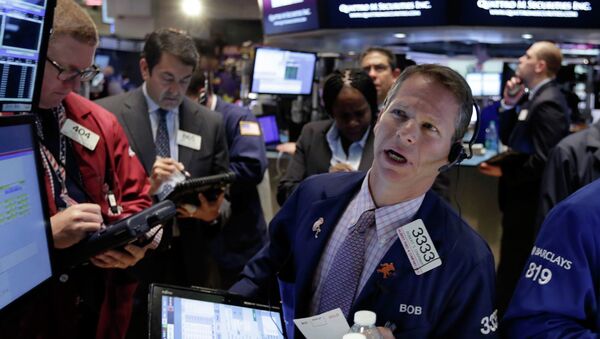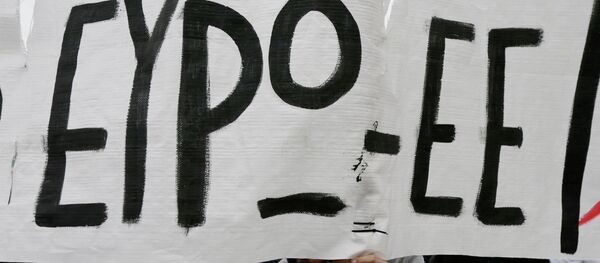Kristian Rouz — After the negotiations between Greece and its international creditors ended in failure late on Sunday, the following day's trading in stocks and bonds was hit by the overwhelming volatility, with most equity and fixed-income markets sagging, except for the German and the US governmetal debt, seen as safe haven of last resort. As it turned out, there was roughly 1 trln euros at stake in the unsuccessful attempts at landing a deal with Greece's left-wing government, a sum of money surely sending a tsunami across the global financials — by comparison, the European Central Bank (ECB) buys back 1 trln euros worth of Eurobonds monthly.
In Europe, the broader FTSEurofirst Index shed 0.8%. Greece's shares were the worst performers on Monday, down 6.2%, while in Frankfurt, the export-driven DAX Index lost only 1.2%.
"It's clear that each day that passes we come closer to a potential Greek default and this risk aversion is a natural reaction by the market," Mathias van der Jeugt of the Belgium-based insurance company KBC said.
Most markets in Asia-Pacific and Europe took the blow, the euro slid against the dollar, and the Spanish governmental debt fell in price. US stocks are poised to follow their overseas peers into the red. US Treasuries and Deutsche Bunds are meeting rife demand, triggering a decline in yield somewhat. US stock index futures were down 0.2% before open on Monday.
The euro slid 0.3% to $1.1230, a good sign actually for the Eurozone's real economy, but the region's financials are not that optimistic. The euro-dollar single-month FX rate volatility hit its 3.5-year high thanks to the unpredictable Greek talks.
10-year Treasury yield fell 0.03% to 2.36%. In Germany, the yield on 10-year Bund is at 0.82% after a decline of 0.15%.
Investors dumped Spanish 10-year bonds in favour of the less risky German papers, consequently, the nation's debt yield rose 0.07%, to 2.32%, in line with market volatility. Italy's 10-year bond yield also advanced 0.07% due to a massive sell-off, to 2.29%, Portugal's bond yield climbed 0.12% to 3.16%. Greece's unwillingness to compromise has thus undermined investors' trust in the entire Southern Europe region.
As Athens are nearing a sovereign default, the ECB, holding over 300 bln euros worth of Greece's debt, vows imminent Grexit less the Greek government changes their mind. That said, the recent developments have clearly demonstrated the hazards of radical left-wing experimentation to the global economy.



